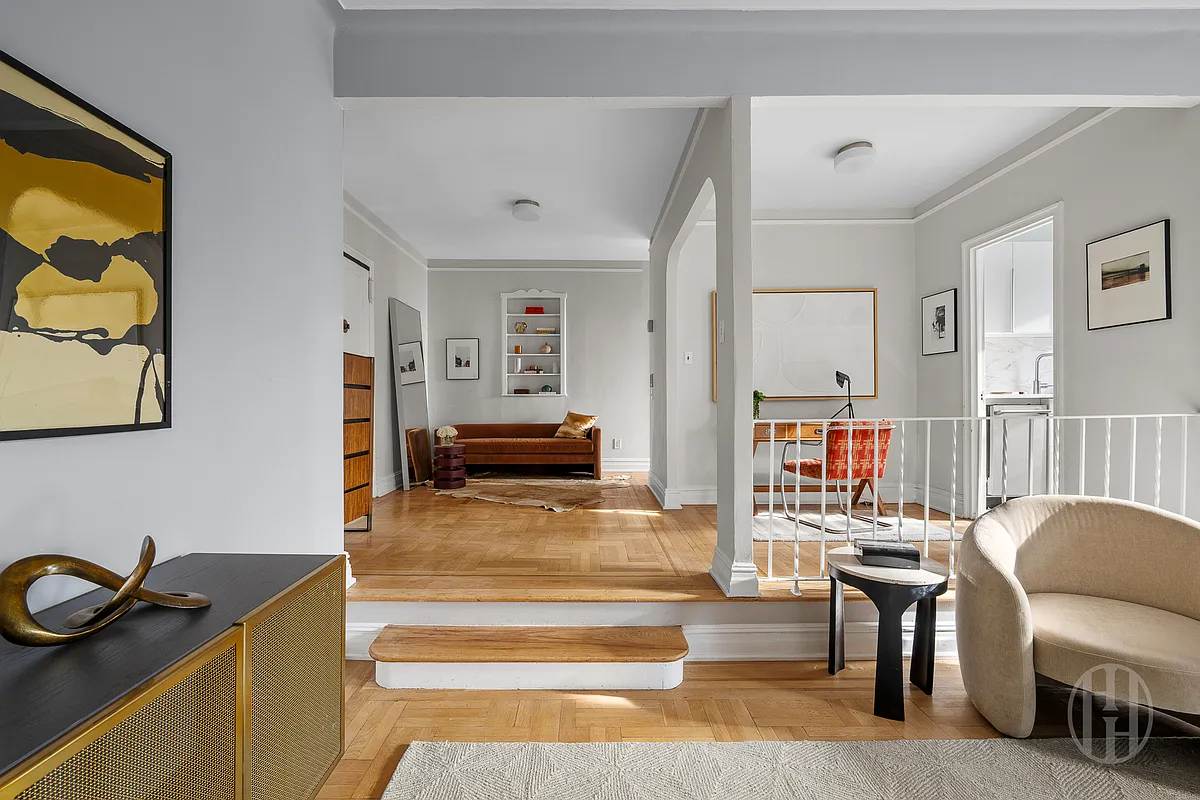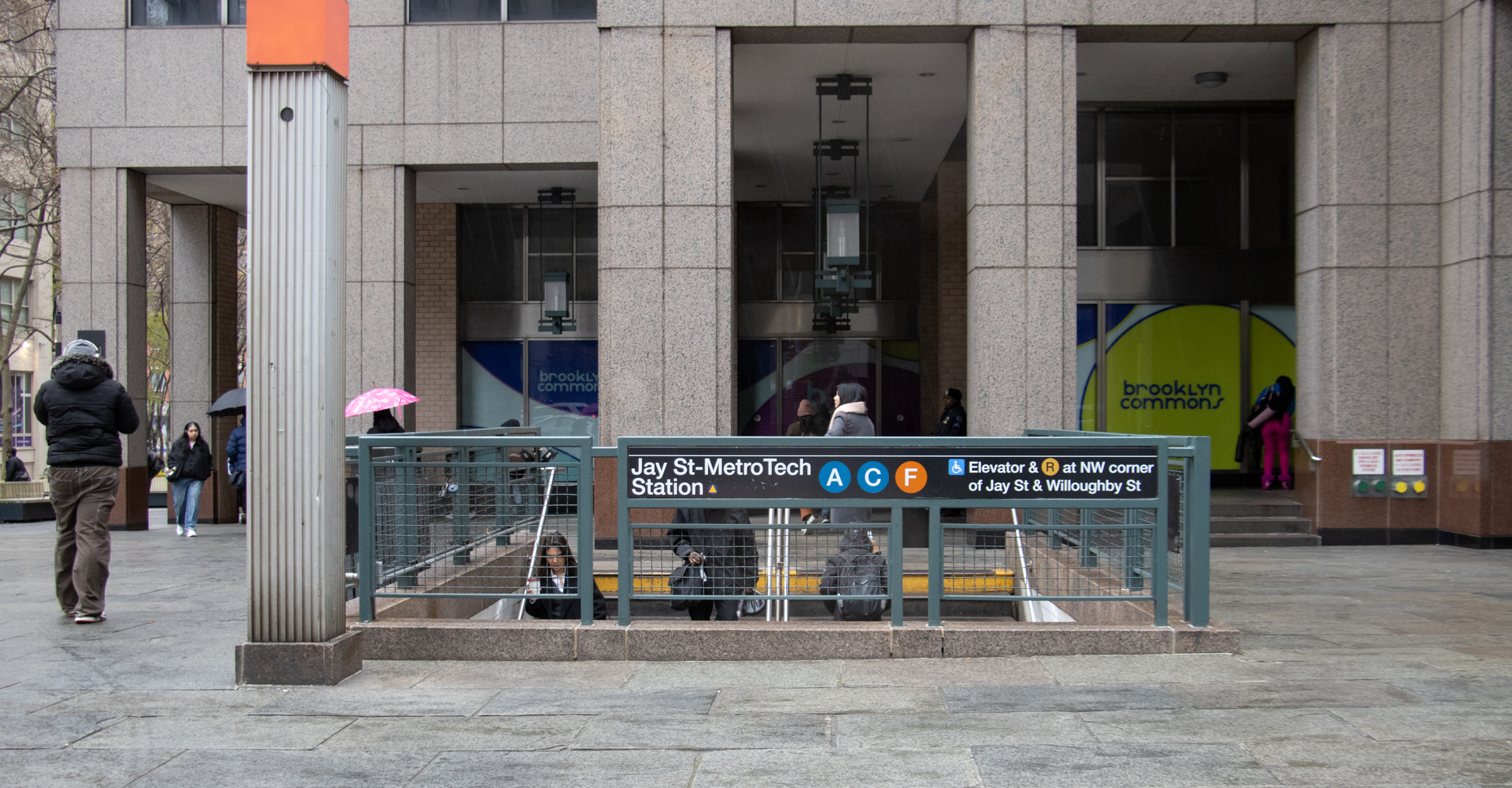Rent-Stabilization Hike: Lose-Lose?
At the conclusion of the typically rowdy Rent Guidelines Board meeting last night, the board authorized increases of 4.5 percent on one-year leases and 8.5 percent on two-year leases for the city’s 1 million rent-stabilized apartments. The hike was the largest one in almost two decades, but many landlords were unhappy with the decision, saying…

 At the conclusion of the typically rowdy Rent Guidelines Board meeting last night, the board authorized increases of 4.5 percent on one-year leases and 8.5 percent on two-year leases for the city’s 1 million rent-stabilized apartments. The hike was the largest one in almost two decades, but many landlords were unhappy with the decision, saying operating costs (especially fuel charges) have skyrocketed. “I am not satisfied with what we have at all,” said one landlord quoted in the Sun. According to the Times, the Rent Stabilization Association, which represents thousands of landlords, had been pushing for increases of between 10 and 15 percent. The board gave another concession to landlords in the form of a supplemental monthly rent increase of $45 for one-year leases or $85 for two-year leases for tenants who have lived in stabilized units for more than six years. Tenants, of course, expressed frustration with the board’s decision. The point we’re making is that this is a charade, Michael McKee, the treasurer of Tenants Political Action Committee, is quoted as saying in the Times. This was a done deal from the beginning. Before the meeting last night, Council Speaker Christine Quinn held a rally in support of a bill before the Legislature that would restructure the Rent Guidelines Board (which is solely comprised of members appointed by the mayor) and deny rent increases for one year on any unit with serious violations.
At the conclusion of the typically rowdy Rent Guidelines Board meeting last night, the board authorized increases of 4.5 percent on one-year leases and 8.5 percent on two-year leases for the city’s 1 million rent-stabilized apartments. The hike was the largest one in almost two decades, but many landlords were unhappy with the decision, saying operating costs (especially fuel charges) have skyrocketed. “I am not satisfied with what we have at all,” said one landlord quoted in the Sun. According to the Times, the Rent Stabilization Association, which represents thousands of landlords, had been pushing for increases of between 10 and 15 percent. The board gave another concession to landlords in the form of a supplemental monthly rent increase of $45 for one-year leases or $85 for two-year leases for tenants who have lived in stabilized units for more than six years. Tenants, of course, expressed frustration with the board’s decision. The point we’re making is that this is a charade, Michael McKee, the treasurer of Tenants Political Action Committee, is quoted as saying in the Times. This was a done deal from the beginning. Before the meeting last night, Council Speaker Christine Quinn held a rally in support of a bill before the Legislature that would restructure the Rent Guidelines Board (which is solely comprised of members appointed by the mayor) and deny rent increases for one year on any unit with serious violations.
Board Backs Rise in Rent Up to 8.5% [NY Times]
Rent Increases Are Approved For Stabilized Apartments [NY Sun]
Photo by richarddavis.





4:33 – virtually everyone agrees with that – the question I have is why does someone who invests and manages a grocery store (for example) potentially pay less for the “greater good” than someone who invests in and manages an apartment building?
Both are required to pay taxes on income, and gains , plus fees for services like water and fuel (and other associated taxes), – so why does it make sense that only the property owner whould “pay” more by directly foregoing income to benefit (not necessarily ‘needy’) tenants?
4:13 – but what if the truth is that while RR helped YOU, on a macro level it actually results in a NYC that is more like the one you DO NOT want – then what?
I havent heard too many people argue against RR based soley on a ‘property rights’ argument – Frankly you can remove LL entirely from the equation and you still have the issue of – is it good to have a system that causes market rate tenants to pay more so that below market rate tenants can pay less.
Nicely put, 4:13. and i agree.Our tax system is predicated on that and one way or another big brother is watching. And we do all pay into the system for the “greater good.” that’s how we pay for public transportation, public schools, fire, police-
It would just be nice if those who abuse the system, on both sides, could be held accountable. I’m living in a dream world on that one.
bxgirl = biff’s loser wannabe lover
4:13 Like you said you are speaking for yourself so please open YOUR wallet.
Landlords and their advocates who complain about the infringement of their property rights are missing the point. RR isn’t about property rights. It’s about the group (“society”) using public policy to try and create the kind of world we want to live in. You can disagree with that or not, but it’s fundamental to the way public policy is conducted in this country, both for better or for worse (think marriage penalty, or the farm bill). Rent regulation, specifically, exists because the majority of the group implicitly consents to it by: choosing to live in NYC, where RR exists; paying taxes to support the abatements that go to landlords who have chosen to participate in the program by purchasing or building property that’s subject to the RR laws; and voting for representatives that don’t repeal the RR laws.
So, why does the majority of the group support this system? For myself, it’s because I don’t want to live in a New York that is populated exclusively by the rich who can afford market rents in new luxury buildings. I don’t want to incent developers to tear down all the old tenement buildings and brownstones every chance that they get so they can build new glass boxes and maximize their returns. I want college grads who don’t have trust funds, and elderly people who don’t have multi-million-dollar bank balances, and the working poor who do most of the dirty work to make everyone else’s lives in NYC so much easier and more pleasant – all to be able to live in NYC. I moved to Manhattan when I made 20K 15+ years ago, and RR was what made that possible – and I don’t want to pull the ladder up behind me just because I’m a landlord now. Obviously I speak only for myself. But complaining about the violation of property rights in a lot of ways proves the point of RR – many, if not most, of us don’t want to live in a NYC where individual property rights are the primary guiding principle behind public policy.
4:01- I’m not Biff, thank you very much. I like him but I am not him and don’t intend to keep repeating that.
Back to the issue- I think we can all find examples of of whether or not deregulation helps or hurts our cause. Maybe it’s just that there isn’t a single answer. When it comes to the corporate world my belief is that deregulation has allowed them to indulge in an orgy of greed to the detriment of the rest of us. I know we all talk about how the market regulates itself- I think the market is so complex that much of what we think used to work, or should work, or did work has changed.
S we’re all right and we’re all wrong. Sounds about right to me.
Polemicist – not sure what is funny
BXGRL or BIFF or whomever said deregulation leads to higher prices – I was simply citing three examples of where deregulation led to lower prices. And since I do not want to get into a debate on the good or bad effects of the Fed – I will say that my example of deregulation in Financial Services had to do with commissions – which were originally regulated and then deregulated and led to an incredible and rapid fall in cost.
The people sitting in their Upper West Side rent stablized 2-bedroom apartments who could have bought them for $100,000 in the 1980’s are the true losers.
2:34 – yes rent control started 70 years ago. But rent stabilization started in the 1970’s.
As an aside, if NYC never had rent control, there would have been so many more rental buildings constructed, along far fewer coop conversions, that market rents would be a fraction of what they are now.